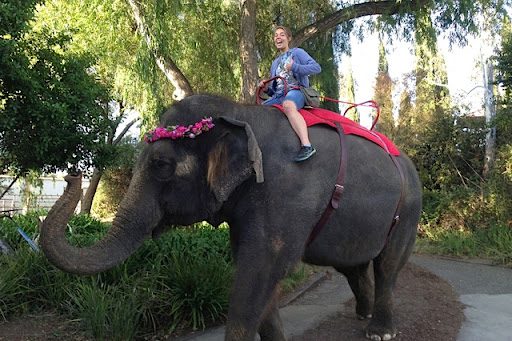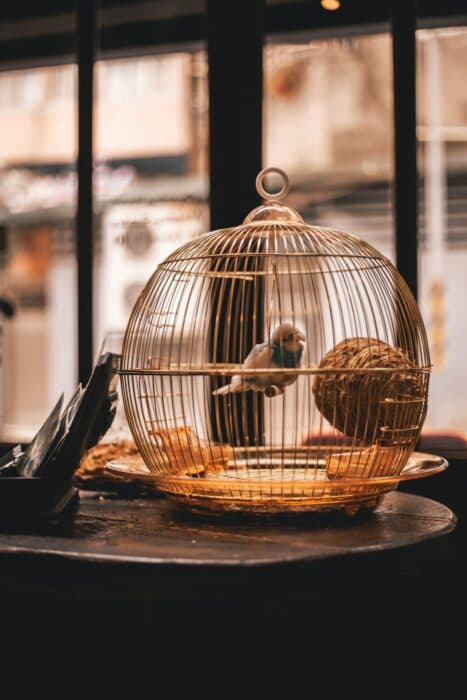I’m Erica, and being diagnosed and treated for OCD gave me my life back. I’m a stay-home mother to three young kids, I’m a member of the Church of Jesus Christ of Latter-day Saints, I’m an author and a mental health advocate, and I love trying new things. For as long as I can remember, I have always enjoyed pursuing lots of interests, everything from playing the tuba, horseback riding, soccer, tennis, art, studying different languages, and most recently, martial arts.
But when OCD got bad, I stopped enjoying things.
I think that I have had Obsessive Compulsive Disorder (OCD) from a very young age. I remember being timid as a kid and having big concerns and deep feelings, which I usually hid. I identify as a Highly Sensitive Person (HSP). I was embarrassed by how sensitive I was, so instead of showing my sensitivity, I put on a stern face and was always trying to be “the strong one.” Luisa, from Encanto, is my soul character!
Overly responsible
When I was 12 years old, I became deeply invested in my faith and religious practices. Around that same time, I was kind of a “poster child” for my faith. I would prioritize prayer and studying scripture every day and would make promises to myself that I would never miss a single day. I would also attend the temple as often as I could (weekly once I could drive). I was always trying to go above and beyond. Other adults in the church would often praise this behavior, cementing in my mind the idea that my rigidity and unending quest for more were good “righteous” things. Though this time of intense immersion in my faith brought me a lot of joy, looking back, I can see that I was beginning to fall into morality OCD and scrupulosity. I was creating and upholding unrealistic, and unnecessary, standards for myself. I was setting the bar too high. Someday I would no longer be able to meet my own standard for “righteousness.”

I was also very over-responsible from a young age. I took personal responsibility for my parent’s and my family’s well-being, especially spiritually. I would initiate family religious practices (family prayer and scripture study), afraid that if I didn’t, our family would be cursed or fall into a cycle of evil. There were times that my family would be hanging out and watching tv together, and I would be convinced there was a bad spirit in our home. To try to ward off the darkness, I would go into the backyard to pray and study scripture for hours. I thought the humming sound of the electronics in the home was evil.
Things need to be right
I would often fall prey to the black-and-white, all-or-nothing thinking pattern. I believed that things were either right or wrong. There was little, if any, room for error. I fell into the “just right OCD” trap. I felt the need to make things right.
In high school, I became even more invested in playing the tuba. I became obsessed with the idea of having my own tuba because I was absolutely certain that I wanted to be a professional tuba player someday. I spoke with my parents and they helped me to purchase my own tuba. I was so thrilled. I loved to play the tuba. However, after a while, my gratitude transformed into this creeping sense of guilt. I felt that I didn’t deserve the tuba.
OCD was at work. I started having all-or-nothing thoughts and unreasonable amounts of guilt and shame.
I thought: There are children in the world who don’t even have food on their plates! How could I be so selfish to have this expensive instrument? My selfishness disgusted me. It bothered me that my parents had spent that kind of money on me. I felt like I needed to practice several hours per day otherwise they had wasted their resources on me. “What if” thoughts invaded my mind. What if playing the tuba wasn’t what I want to dedicate my life to? What if this wasn’t the right path? My parents were confused at my sudden change. They always tried to support me and give me opportunities. When I would make these sudden changes, they would try to understand what was going on and why. But my OCD was very convincing to me, and I would follow what my OCD told me to do. Eventually, I talked my parents into selling the tuba, thinking that if I wasn’t “all in” then it wasn’t worth it anymore. I made many decisions based on those all-or-nothing thoughts and feelings of anxiety, guilt, and unworthiness.
I felt too different
Throughout my life, I’ve had this uneasy feeling that I’m “different” than other people. That I don’t belong. That I’m not normal.
As a teen, I wasn’t sure why I was so different. At the same time, there were pieces of me that I really liked. I was sensitive to others and their needs. I could make anyone feel seen, included, and valued. But even though I was keenly attuned to what others were feeling, and their challenges, I felt that no one could help me with my own. I often felt like I was broken and that no one could see my suffering, except the Lord. Later, when scrupulosity got worse, I felt that even the Lord could no longer understand or help me. I was beyond any help, any reach, and any compassion. I often felt so alone, and the feeling terrified me.
This belief that I was too different to be understood seemed to be proven when I tried therapy. I remember going to my first therapy session with a college counselor. This would be the start of many appointments with many therapists, who all seemed to hit a wall eventually where they just couldn’t help me. Many of these treatment providers were searching for trauma, something deeper than I believed I had to share. Was what I had to say not enough? Was I not broken enough to be helped by them? I felt like not even therapists could understand me, increasing my sense of isolation.
My visits often left both me and my therapist unsatisfied because they didn’t find the “trauma” they were searching for to explain my distress. Sometimes I would just pretend the sessions were helpful. I was often more worried about making my therapist feel good than about actually making progress.
It’s crazy to think that if my therapists had been able to recognize my OCD, I could have been diagnosed 8-10 years earlier than I was. I could have had support and resources to help me with the OCD that would hit me hard postpartum.
OCD is never satisfied
In college, my compulsions started to interfere more drastically with my life. I became fixated on whether I was studying the right major. Was I passionate enough? I could never seem to feel sure enough that what I was doing was right. I began to switch my majors frequently, and the school counselors chalked it up to being “indecisive” like all the other millennials.

I spent many late nights paralyzed by fear, switching majors multiple times online, then running around campus during the day to get paperwork signed to be allowed into the new major. As soon as the switch was official, the OCD would hit again, and I’d begin the cycle of researching majors, intense anxiety, and switching majors again.
I was positive that every time I chose the “wrong” major, I was ruining my life, destroying my future. But OCD was never satisfied. There was never a “right” major.
From missionary to mother
Eventually, I took a break from college to serve a full-time mission for my church for 18 months. I thrived as a missionary, partly because the leaders and the missionaries valued “exact obedience.” I could embrace my black-and-white mindset and follow all the mission rules precisely. Just like I was put on a pedestal as a teen, I was often considered an “exemplary” missionary. I can see that my scrupulosity was encouraged and reinforced by my faith’s emphasis on obedience and exactness.
Now that I’m recovering from OCD, I’m able to recognize that a regular standard of obedience is much different than OCD’s standard of extreme and impossible obedience.
Looking back on this experience, I know that my service was valuable. I also can see that I took things to the extreme in many situations. If I could do it over again, I would have focused more on the people and compassion than on rules. I would have been less rigid.
Shortly after returning from my church mission, I married my husband and we began our family. Marrying my husband, having my kids, and living my faith have been the best decisions of my life. And all of these have also been heavily attacked by OCD.
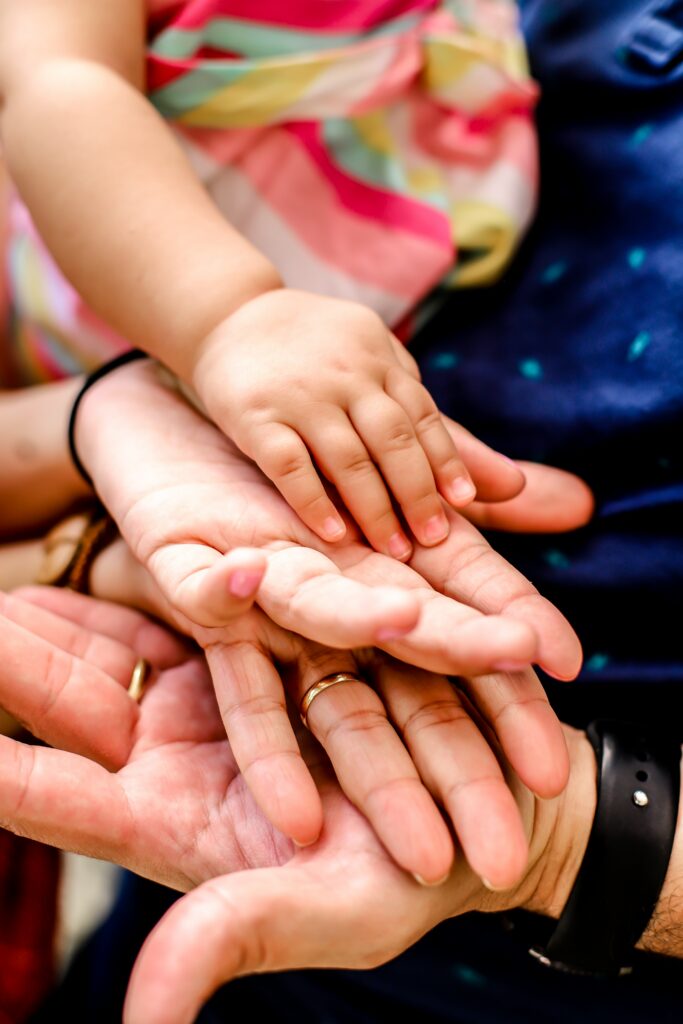
Postpartum anxiety and OCD crippled me. But I didn’t realize what was happening until I crashed. In my mind, there was only one way to be a good mom: complete self-sacrifice. I either stayed home and gave all of my time and energy to my kids until I was depleted and depressed, or I was not a good enough mother. And if I couldn’t keep going after being depleted and depressed, I also wasn’t a good enough mother. My faith puts a lot of emphasis on the importance of families, and my OCD took that to the extreme. I was “all in,” or I was no good.
Scrupulosity and parenting
As a young mother, my mindset around religious practices and beliefs changed, and my faith slowly became a prison rather than a blessing. My mindset shifted from “God is loving, merciful, and kind” to “God will be disappointed and punish me if I don’t do this.”
I began to feel anxiety and sadness instead of joy in my worship rituals. As a new mom, I could no longer meet my own standard for “righteousness.” I remember opening my scriptures, then instantly hearing the baby start to cry. I felt tremendous guilt every time this happened. And it happened every single day, multiple times. Over time, I began to associate my scriptures with feelings of guilt, shame, and failure. To this day, looking at my scriptures usually sends panic coursing through my body. I became so afraid that I could never meet “God’s” standards when In reality, I couldn’t meet OCD’s standards. I felt that I was constantly letting God and myself down. I hated the feeling of being a disappointment to God. Whereas I used to enjoy participating in hours of prayer and reading scripture, now I couldn’t even crack my scriptures open without feeling sick to my stomach.
I felt confused, hurt, and discouraged by these changes that were happening inside of me.
I didn’t realize it, but I was often lonely and depressed. I would cry a lot. I felt completely alone as a stay-home mother. I was terrified of being alone with the kids, yet I did it day after day for years. I was living a very restricted life. I became terrified of leaving my house with my children, afraid of what may happen. Every possible danger would flood my mind. Everywhere I looked there seemed to be risks. Cars. Stairs. Even playgrounds where kids could hit their heads on concrete or fall off of high platforms. I couldn’t handle risking my children’s safety, so I would just stay home, lonely and terrified of the outside world. I was miserable, but at least my kids were “safe.” I understand now that because of my OCD, I often have poor judgment of risk. Things that aren’t actually dangerous can seem very dangerous to me.
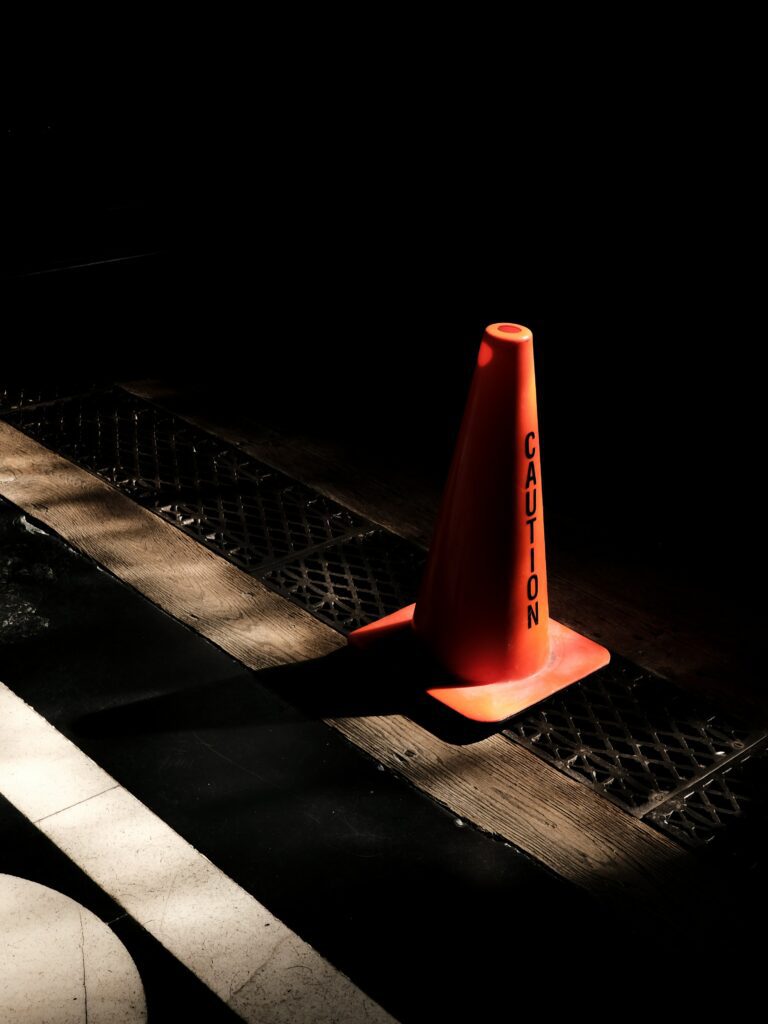
I also had extreme guilt around ordering take-out food or spending money to make my life easier. I thought my only purpose in life was to sacrifice myself for the well-being of my family.
My OCD would put “meaning” on my feelings of sadness and isolation and tell me things like “If you really loved your kids and husband, you wouldn’t feel so sad all the time. You should be grateful for this. And if you feel these feelings, it means you’re not grateful.” I was full of shame.
Even while I was struggling so deeply, people often commented on how “good” I was doing as a mom. They saw my dedication as beautiful. They praised my rigid ideas on being a good mother. I was still being labeled as especially “righteous” and many people still put me on a pedestal. OCD sometimes looks really good from the outside. OCD can make a person look very confident, exact, or put together. When the truth was that I was broken and hurting. I just didn’t know it because I had no way of labeling it or putting it into words.
Hobby obsessions and compulsions
When I realized I needed to start investing in myself and not just depleting myself for the sake of my family, my OCD decided to latch onto my hobbies and interests.
My compulsions evolved into adopting animals, rescuing animals, and rehoming animals. I thought that without having pets I would be depressed, unimportant, and unlovable. Having pets made me feel needed. I didn’t realize that I was giving myself more responsibilities and more opportunities to sacrifice myself to care for someone or something.
I’d often get sucked into a deep pit of online research revolving around a certain type of pet for days or weeks on end. I was obsessed with figuring out which kind of pet was the right pet for me. On one occasion, I became obsessed with snakes. I researched snakes non-stop for about three weeks straight (literally all day I would research them, then I’d dream about them all night, then wake up and research them again). I was convinced that without a snake, my life wouldn’t be right. Luckily, my husband asked me to wait on buying a snake. Later, my dreams turned into snake-themed nightmares.
At one point as a young mom, I decided to get back into horseback riding. It felt like a big deal and a big sacrifice, since I wasn’t used to spending money on myself, and my husband was still in school so we didn’t have a lot of money, to begin with. Once I started riding, I noticed that everyone else seemed “more invested” than I was. I felt embarrassed and ashamed that I wasn’t as invested as they were. So I started thinking I also needed to loan or buy a horse to be part of the community. That led to stressful conversations with my husband where I insisted that I needed a horse and he honestly told me that there was no way we could afford a horse. When he told me we couldn’t afford a horse, I would cry and fall into a deep depression.

My OCD had told me that buying a horse was the only way to happiness. If I couldn’t buy a horse, there was no longer a road to happiness in my life. Realizing I couldn’t be “all in” and that my hobby was “taking me away from my family”, I quit. This same pattern happened again and again with different hobbies. Once I even started a business, investing a lot of money, then pulling out.
All of these “jump in” then “jump out” all-or-nothing hobbies left me with an intense disgust for myself. I felt so ashamed and embarrassed about my behavior and my unexplainably “messed-up” brain. The pain and shame were so intense.
Feeling trapped
Before receiving help and treatment for OCD, I often used the word “trapped” to describe my life and how I felt.
I often told my husband that I felt like a bird in a cage.
I see now that being a stay-home mother wasn’t what “trapped” me. It wasn’t not having enough money to pursue the hobby obsessions that trapped me. I was trapped by the anxiety and OCD that constantly attached unrealistic standards and overwhelming fears to everything I did. It was so exhausting to be controlled and manipulated by my OCD.
Eventually, being in a constant state of high anxiety took a toll on my body, and I fell into a health crisis. I felt I had lost everything. I was so sick, I couldn’t get out of bed, I had to drop out of college (again), and I couldn’t even take care of my own kids. In my darkest moments, I felt that if I couldn’t take care of my own kids, I didn’t have value or purpose anymore.
I had stopped feeling connected to my God during this time. I was so ill that I went for 6-12 months without feeling God’s influence in my life. As a dedicated teenager and then a missionary, I was accustomed to feeling His love and Spirit in my life, to always having a connection with Him. But this was a time of spiritual darkness. I felt betrayed and abandoned. I had continued to do the things I believed He wanted me to do (praying, studying His words, worshiping at church and in the temple), and yet I felt He had no longer kept His promise to me that He would be with me and help me. I felt utterly alone and abandoned.
Help at last
I found help and healing through a series of small but miraculous events. I am so grateful to my husband, parents, and my sister. They each played important roles in getting me the help that I desperately needed.
After lots of visits with confused doctors, checking myself into the ER and getting no answers about why my health was failing, and antibiotics that would make my stomach hurt so badly I thought there would be permanent damage to my body, one of my doctors recommended I take medication for anxiety. He said that if I could get my anxiety under control, perhaps I’d have better luck figuring out all of my physical health symptoms (including facial swelling, headaches, nausea, constant fatigue, immune system failure, etc).
This was extremely helpful because I’d gotten to the point where I was too depressed and exhausted to keep going to all of the different doctors’ appointments. Around this time, my mom recommended I try a functional medicine doctor. This new doctor changed my life. She immediately recognized many of my symptoms as my body’s immune system fighting against the food I was eating. She changed my diet to remove all likely food sensitivities, and I felt significantly better within two days of the change. My headaches and stomach aches mostly went away and I had energy again.
With my physical health back on track and my anxiety curbed thanks to the medication, I started to recognize there was something else going on in my mind, not just the anxiety. It was the first time in years that I felt what it felt like to not be anxious all the time. I remember being shocked as I felt the anxiety come and go. Before it had always been constant. So constant that I had never recognized it.
Now I began to notice that even when I wasn’t anxious, my thoughts would often get “stuck.” They would funnel onto certain topics and stay there for days. I would feel trapped in these thought loops. I would spend entire days doing internet research on whatever topics my brain had stuck on. My brain craved certainty about any doubts or questions that came to mind. I felt I had to do these hours and hours of research to get answers. Then I’d experience intense guilt because I wanted to be spending that time with my kids or doing something that was meaningful for me.
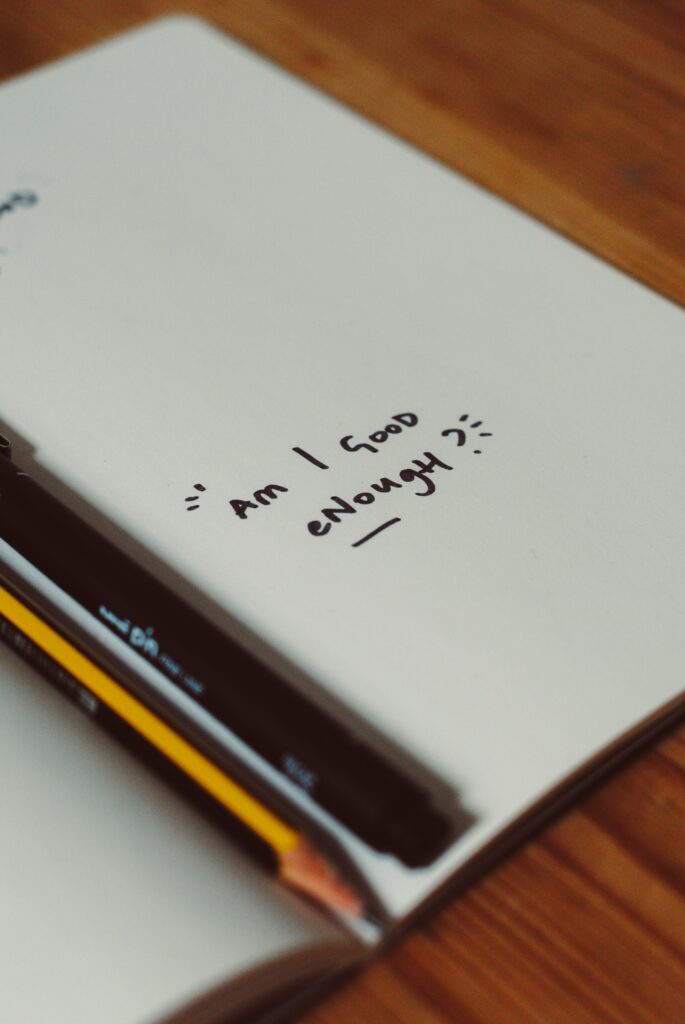
I started researching my brain’s patterns and thought I might have OCD. This was the first time in my life that I ever began to hear about OCD and understand what it meant (besides just hearing about OCD jokes and stereotypes). I decided to contact an anxiety and OCD specialist to see if I was on the right track to getting help.
A Life-changing diagnosis
The diagnosis of OCD and Generalized Anxiety Disorder (GAD) came through a local clinic. The cost of treatment and time investment needed was too high, and I felt discouraged.
Then I heard about NOCD. NOCD changed my life. I’ve done ERP treatment through NOCD twice now. And my life is completely different than it was before.
I went from a health crisis, depression, and OCD consuming my life day after day, to taking my life back, becoming an author, and enjoying my life again! Being a stay-home mom no longer feels like a depressing trap. Instead, I really enjoy it. I am able to choose how I want to live my life and enjoy it. I’ve been learning to face my feelings head-on and experience them all, sadness, fear, and disappointment, but also joy, gratitude, and peace.
Of course, I still struggle with OCD, but now I have tools, support, and hope. I am learning to let go of shame and replace it with self-compassion.

I used to be terrified of being alone, left with the monster in my head. I was the meanest, scariest person to myself. I always wanted to be with someone else who could protect me from my own mind. Now, I’m learning to trust myself to take care of myself. I’m becoming my own best friend. I enjoy my hobbies again, enjoy motherhood again, enjoy my religion again.
I’m more patient with myself now. I know that I’ll get triggered at church. I know that I’ll get triggered when I read the scriptures. I know that the mean voice in my head will tell me I’m not enough or that I’ve failed. But I can do all these things that I value anyways, just because I value them, and because OCD doesn’t get to tell me what to or not to do anymore. Now I get to choose how I’ll live my life. I get to choose to walk into uncertainty and pursue my values.
My faith doesn’t ask for perfection. So I no longer require perfection from myself. My faith asks for effort and growth. So I love and accept myself along the messy journey of growth.
Living with OCD is hard. But life can still be meaningful, full of growth, full of learning, and joy, especially when you have the support and resources you need to thrive.
Sexual-orientation (SO) OCD attacked me during my therapy and recovery
Even after and during my NOCD treatment, OCD challenges me. There was one point when I struggled with sexual-orientation OCD for 6 months even though I am married to the man of my dreams. Remember, OCD attacks the things you care about most.
I started to get extremely triggered by television shows with same-sex couples and by Pride Month. It was frustrating because I wanted so badly to become more educated and more empathetic and supportive to my LGBTQ+ loved ones, but every time I saw anything about LGBTQ+ Pride, my OCD would pull me into obsessions about whether or not I would cheat on my husband and leave him for a woman. My compulsions not only included avoiding shows or social media for fear of triggers but also avoiding getting together with friends for fear that spending time with a girlfriend would lead to cheating on my husband. I was triggered by seeing couples, of any orientation, obsessed with knowing whether I was more attracted to men or women. These feelings depressed and terrified me.
My NOCD therapist helped me through this hard time. Exposures were hard. But it was worth it. ERP really worked.
My bout with sexual-orientation OCD wasn’t solved by me gaining certainty about my sexual orientation. Instead, I discovered that for me, personally, I don’t need certainty in this area. OCD demands that you have certainty. OCD demands that you search and search and search until no uncertainty is left. But this is impossible when you’re stuck with OCD. Recovery comes from allowing uncertainty in your life and tolerating the unknown, then choosing to live your life according to your values. I’ve had to learn to accept and live in gray areas while honoring what’s most important to me. For me, this means that regardless of how OCD attacks my marriage, family, or faith, I can choose to keep honoring my marriage, family, and faith.
Today
I never expected to be where I am today. I’m still a stay-home mother, but now I find joy in it. I’ve added things into my life that recharge me and bring me joy. When I’m filled up, I’m able to give more to others. And giving to others brings me joy, but now I know that it’s not what gives me value and purpose. I believe that I’m worth investing in. I’m worth filling up.
I never expected to be an author. Being an author feels like a miracle to me, another step in my journey of healing and growing. Authoring fell into place as part of my recovery process after my health improved. Now I am especially passionate about writing fiction that builds empathy and understanding around characters with mental illnesses. I enjoy selling my books at farmers’ markets and have often been able to have meaningful conversations about mental health with the people I meet there.

It really is possible to get your life back and to love that life, even if you still struggle with OCD. You just have to take that first, scary step into the unknown. Whether that’s talking to someone you trust about what you’re experiencing, making your first therapy appointment, or resisting doing the compulsions that OCD demands of you. We can do this!
Check out this website for more information: www.ericarichardsonauthor.com
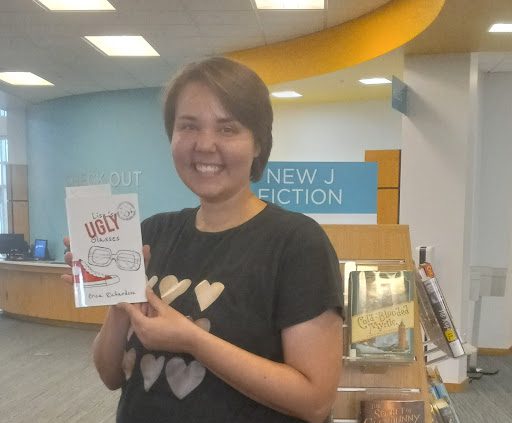
Check out my blog at https://safespaceocd.blogspot.com and check out my video at https://youtu.be/OsNB6bAIqkk
